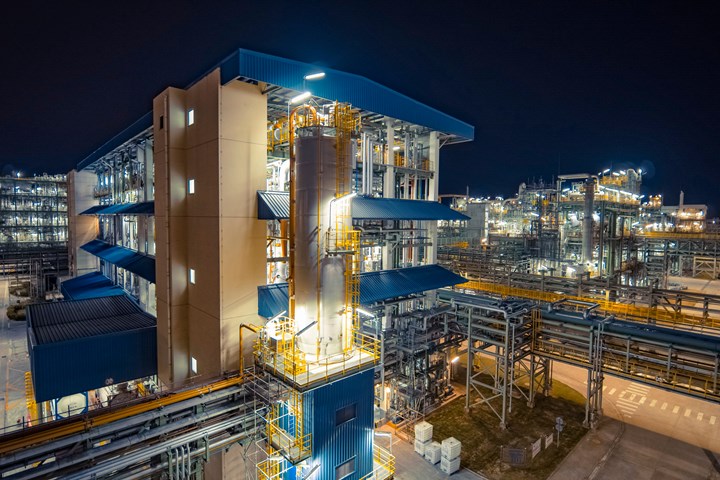Covestro increases production capacity for PUDs and polyester resins
New production facility at the Covestro Integrated Site in Shanghai will address rising demand for environmentally compatible coatings and adhesives.

Covestro's existing production plant for polyurethane dispersions in Shanghai, China. Photo Credit: Covestro
Covestro (Leverkusen, Germany) is planning a new production facility for polyurethane dispersions (PUDs) at the Covestro Integrated Site in Shanghai, China (CISS) to address the rising demand for environmentally compatible coatings and adhesives in the Asia-Pacific region. An additional line for polyester resins, from which PUDs are produced, is also to be built there. The plants are due to be completed in 2024.
“With these investments, we are preparing for the continued growth in demand for these products and expanding our leading global position,” says Michael Friede, global head of the Coatings, Adhesives, Specialties segment at Covestro. “In the future, customers will continue to rely on replacing solvent-based products with more sustainable waterborne systems with equally good properties. Thanks to our versatile production, we are at the same time flexible and can satisfy many different requirements.”
Covestro develops tailor-made PUDs for a wide range of industries and applications. For instance, Covestro raw materials from its Bayhydrol UH, U and UV series and Bayhytherm are used in basecoats for automotive primary and refinish coatings, as well as in wood and furniture coatings and robust floor coatings. Adhesives formulated with Dispercoll U are used in furniture and shoe manufacturing as well as in the automotive industry. The low-solvent components also play a role in the production of coated textiles and fiber-reinforced plastics.
The company is a leader in research and development (R&D) of products and process technologies and supports customers around the globe with technical services.
Related Content
-
Mito Materials graphene amplify composite fly fishing rod performance
Functionalized graphene addition to premium-performance Evos and Evos Salt fly rods by St. Croix Fly enables faster recovery, increased torsional rigidity and improved strength-to-weight ratios.
-
Toray rCF from Boeing 787 is incorporated into ultra-light laptops
Torayca-based aerospace components have successfully been repurposed into the Lenovo ThinkPad X1 Carbon Gen 12, highlighting the ongoing application of recycled composites.
-
KraussMaffei and partners develop sustainable, safe and stylish children’s bike
The Lion Bike is a German-made, injection molded bicycle with 40% recycled carbon fibers with zero scrap and enabling 67% lower CO2 emissions during production.













